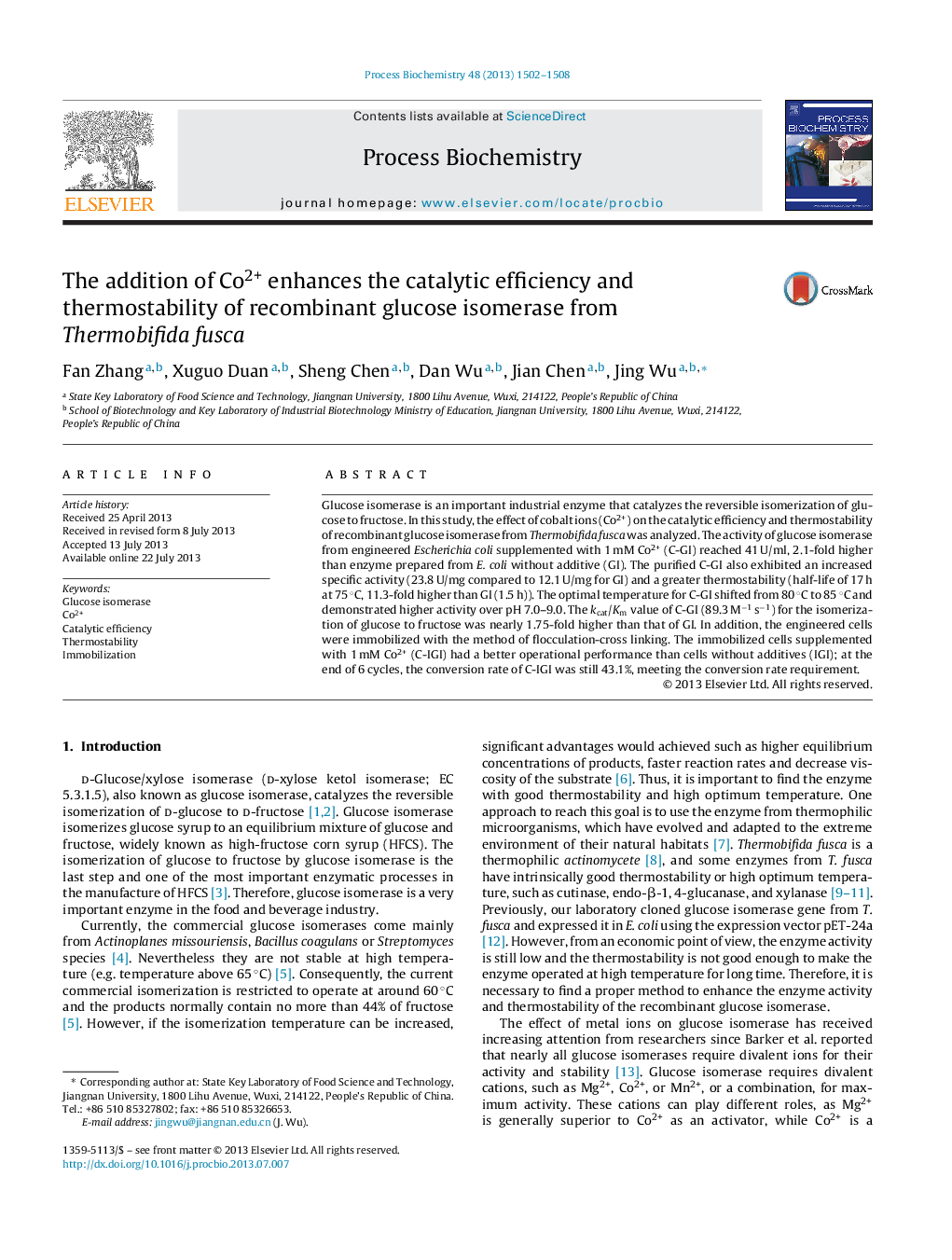| Article ID | Journal | Published Year | Pages | File Type |
|---|---|---|---|---|
| 34546 | Process Biochemistry | 2013 | 7 Pages |
•Co2+ remarkably enhanced the catalytic efficiency of Thermobifida fusca glucose isomerase.•Co2+ remarkably enhanced the thermostability of T. fusca glucose isomerase.•A synergistic effect of Co2+ and immobilization on application performance is studied.•The immobilization method provides a reference to the food industry.
Glucose isomerase is an important industrial enzyme that catalyzes the reversible isomerization of glucose to fructose. In this study, the effect of cobalt ions (Co2+) on the catalytic efficiency and thermostability of recombinant glucose isomerase from Thermobifida fusca was analyzed. The activity of glucose isomerase from engineered Escherichia coli supplemented with 1 mM Co2+ (C-GI) reached 41 U/ml, 2.1-fold higher than enzyme prepared from E. coli without additive (GI). The purified C-GI also exhibited an increased specific activity (23.8 U/mg compared to 12.1 U/mg for GI) and a greater thermostability (half-life of 17 h at 75 °C, 11.3-fold higher than GI (1.5 h)). The optimal temperature for C-GI shifted from 80 °C to 85 °C and demonstrated higher activity over pH 7.0–9.0. The kcat/Km value of C-GI (89.3 M−1 s−1) for the isomerization of glucose to fructose was nearly 1.75-fold higher than that of GI. In addition, the engineered cells were immobilized with the method of flocculation-cross linking. The immobilized cells supplemented with 1 mM Co2+ (C-IGI) had a better operational performance than cells without additives (IGI); at the end of 6 cycles, the conversion rate of C-IGI was still 43.1%, meeting the conversion rate requirement.
